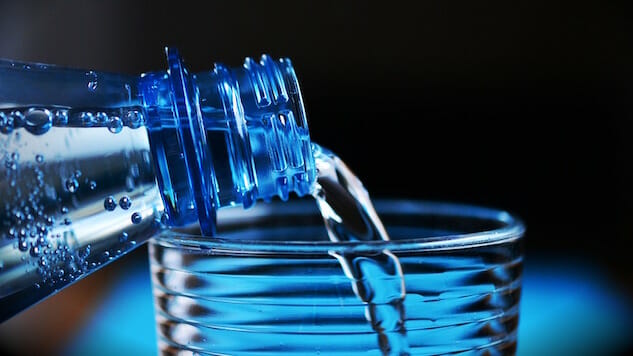Fact or Myth: Do We Really Need Eight Glasses of Water a Day?

Water is life. You can survive without food for about a month, but can perish from dehydration in a mere three days. But has our concern for keeping our bodies hydrated led to overconsumption of H2O—and perhaps even pose some health hazards? In extreme circumstances, yes. But the main concern is the purported fallacies associated with how water can benefit our bodies.
The Origins of the Hydration Myth
In 1945, the U.S. Food and Nutrition Board recommended that people drink 2.5 liters of water a day. Evidently, this finding was taken out of context because the following sentence was not considered: “Most of this quantity is contained in prepared foods.” In 1945, the term “prepared” entailed foods that contained water, such as fruits and vegetables. As a result, there was an urge to consume 8 glasses of water (2.5 liters) in addition to food and drinks we were already consuming throughout the day, which added up to this amount.
Today, iterations and (mis)interpretations of these guidelines are still being circulated by organizations such as Hydration For Health, where water is made to be significant in promoting the well-being of the general populace. According to the British Medical Journal, Hydration for Health is an “organization” with vested interests in pushing the public to consume more water; it is sponsored by and was created by French food giant Danone, a major producer of bottled water (e.g. Evian).
Debunking General Claims and Myths
According to Dr. Stanley Goldfarb, Professor of Medicine at the Perelman School of Medicine at the University of Pennsylvania, “The Hydration Myth” is still one of the most pervasive, “good-for-you” pieces of health advice out there. As well, he adds that its enduring popularity is due to it being a cheap resource and catch-all remedy to cure you of general ailments. Unsubstantiated claims of what water can do for the body include “flushing” out toxins, benefiting kidney functions, making skin look healthier and/or wrinkle free and making you feel more energized. Goldfarb also elaborates on why it has so much appeal: “It is the notion that drinking water will fix problems such as headaches, skin blemishes and fatigue, etc. Moreover, it seems intuitive for us to drink water and that a little overconsumption will not pose a threat to our health. I think that is where this train of thought comes from.”
However, the Journal of the American Society of Nephrology states the following: “There is no clear evidence or benefit from drinking increased amounts of water … in fact, there is simply a lack of evidence in general.” Goldfarb agrees with this and adds, “People who have advocated water as having these sorts of amazing healing and holistic properties have no real basis. In fact, there is no scientific basis or data to support such claims.”
As well, organized bodies who write food and nutrition guidelines may not have accurate information—or taken out of context. Goldfarb explains, “Anybody can write a guideline. Any group of individuals can get together and say, ‘this is what we think.’ But the real question should be if those guidelines are correct or not and to heed such advice with caution.”
-

-

-

-

-

-

-

-

-

-

-

-

-

-

-

-

-

-

-

-

-

-

-

-

-

-

-

-

-

-

-

-

-

-

-

-

-

-

-

-








































